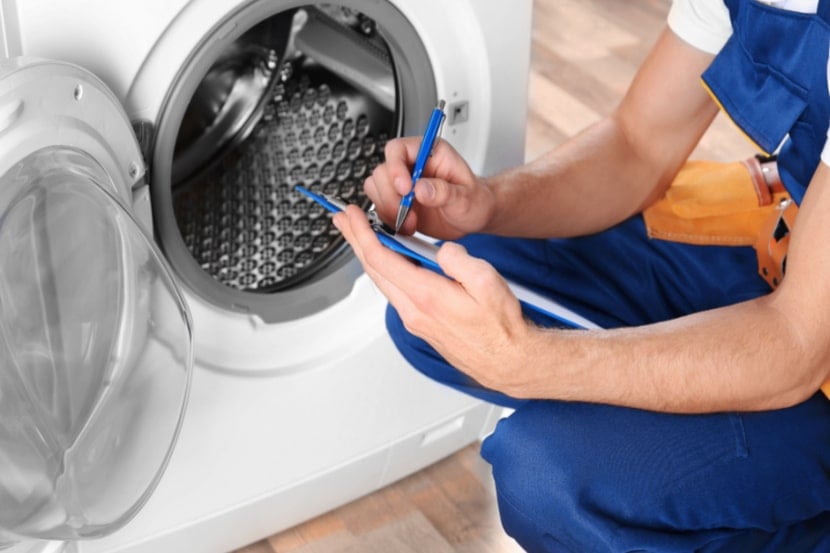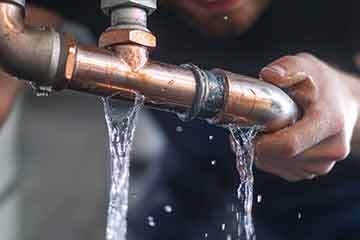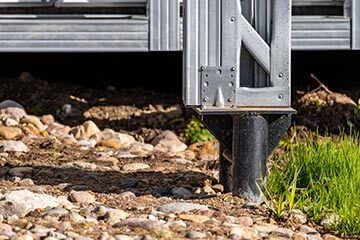If you've ever had a TV or a washing machine break down, you'll know the frustration that comes with it. So don't miss the next episode of your favourite show, or let your laundry basket pile up. If an expensive appliance is on the blink, home appliance insurance can help cover a replacement.
In some situations, for example if your appliance has a warranty, you won't need this type of cover. We'll explain more about home appliance insurance and help you work out if you need it.

What is home appliance insurance?
Home appliance insurance helps cover the cost if household items are stolen, accidentally damaged or stop working unexpectedly. Think of the appliances you rely on every day, like washing machines, fridges, ovens and dishwashers.
Replacing or repairing these can be expensive, so this type of cover helps make sure you're not left with a big bill. In most cases, protection for appliances already falls under your contents insurance. So if you already have contents cover (or a combined buildings and contents policy), your appliances are likely covered already.
What is the difference between home appliance insurance and a warranty?
At first glance, warranties and insurance sound similar, but there are key differences in what they cover and how long they last:
- Manufacturer's warranty - usually comes free with a new appliance, lasting 12-24 months. It generally covers faults that occur due to how the appliance was built, like defective parts or manufacturing errors.
- Extended warranty - lets you pay extra to keep that manufacturer-style cover going for longer, but still only applies to the one appliance you bought it for.
- Home appliance insurance - often included under your contents policy, though it can be bought separately. Unlike a warranty, it can cover multiple appliances at once and can protect against things like accidental damage and theft.
Do I need appliance insurance if I have extended warranty?
You might not need appliance insurance if you have an extended warranty. They generally cover similar things, for example:
- The cost of repair
- New for old replacement or equivalent value in cash if it can't be repaired
- accidental damage
- regular servicing
But it's best to check the terms and conditions of your extended warranty so you know exactly what you're covered for.
If you've only got 1 appliance to cover, an extended warranty could work as it usually only covers for a specific appliance. Appliance insurance, on the other hand, offers cover for more than 1 appliance all under the same policy. This can also be known as multi appliance insurance.
You also won't need appliance insurance if you've got the correct level of house insurance cover with your existing insurer.
What appliances are included on a home appliance insurance policy?
The domestic appliances that could be covered by home appliance insurance are:
- Fridges and freezers
- Ovens, hobs, hoods, microwaves, cookers
- Washing machines
- Tumble dryers
- Dishwashers
- Wine coolers
- TVs and DVD players
- Speakers
- Games consoles
Policies differ on what they accept as part of their appliance cover, so read the fine print to double check.
Does it matter how old my appliance is?
Yes. The majority of appliance insurers can only cover appliances up to a certain age limit. So an ancient tumble dryer or hand-me-down Nintendo might not be covered. This is because there's a much higher likelihood of them breaking down.
Most home appliance insurers cover appliances of up to 8 years old. But the age limit varies depending on the insurer, so check the policy before committing to buy.
What does home appliance insurance cover?
A typical home appliance insurance policy should cover for an engineer to repair your broken appliances. It should also cover for labour and parts costs.
If your faulty appliance is broken beyond repair, you should be able to replace it with a like-for-like model with your policy.
In some cases, your policy may cover for accidental damage of the appliance. Sometimes TV's are excluded from this, so check the policy documents to see what's covered and what's not.
Generally, your appliance cover might exclude:
- Cosmetic damage
- Wear and tear
- Appliances over a certain age
- Damages before you took out the policy
- Misuse or abuse of appliance
- Commercial appliances
- Damages from theft, fire or explosions
Do I need home appliance cover?
There is no legal obligation to have home appliance cover, although it may be worth looking into if you if you own expensive appliances that you want to protect.
If you have contents insurance your appliances should already be covered against theft, fire or storm and flood damages as standard. But it could be worth double-checking this cover is already in place.
You also need to have remembered to list high value appliances, such as a TV or fridge freezer, worth over the 'single item limit' of £1,000. Otherwise you may be under-insured.
Compare home insurance quotes
How much is appliance insurance?
It varies depending on different factors such as the level of cover, the value of your appliances, your no claims bonus history and your insurer.
You can also choose to cover more than 1 appliance, which also affects the costs. Some policies are flexible enough to allow you to add or remove items at any time.
Paying more voluntary excess could help you get cheaper appliance insurance.
How can I get cheap home appliance insurance?
You don't usually need a separate 'home appliance insurance' policy. With the right contents insurance, your appliances - from the fridge-freezer to the washing machine - should already be covered against things like theft, fire and accidental damage.
If you're shopping around, here are some ways to help keep your premium down:
-
Pay annually - insurers often charge extra for spreading the cost monthly.
-
Think about your excess - a higher voluntary excess can bring premiums down, just make sure you can comfortably afford it should you ever need to claim.
-
Improve home security - alarms, locks and other security measures can sometimes lower your quote.
-
Compare your options - coverage can vary from insurer to insurer, so it's worth comparing to find the cover that gives you the best value.
What our home & lifestyle insurance expert says
“Although you get a decent amount of cover with home appliance insurance, it can be expensive when you compare it with the cost of the appliance itself. These policies may cover a mechanical or electrical breakdown, which your home insurance probably won't. Consider an extended warranty or choose a retailer offering one as standard, as these are usually cheaper and offer the same amount of cover as a home appliance insurance policy.”









